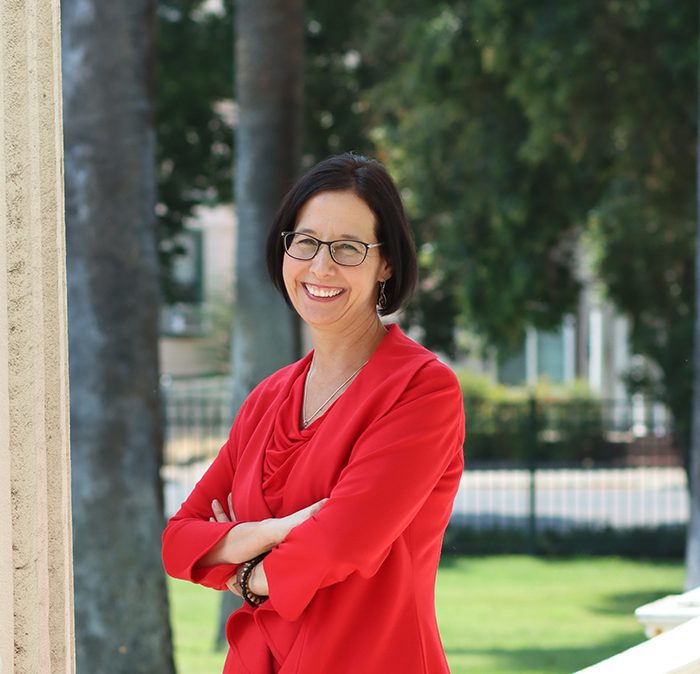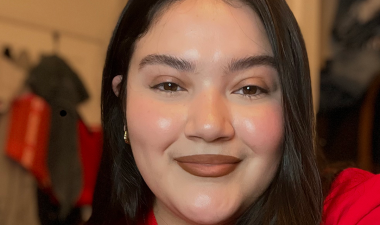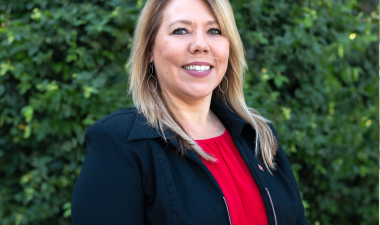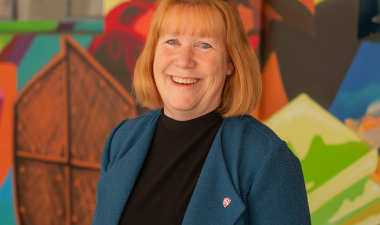
Anysia Mayer’s first research effort in Stockton began in 2002 when she studied International Baccalaureate programs for her doctoral dissertation and included the one at Stockton Unified School District’s Franklin High School.
Nearly 20 years later, Mayer is back in Stockton with an eye toward more research as the first director of Stanislaus State’s Community Equity Research Center (CERC), previously the Center for Public Policy Studies, which will be housed at the Stockton Campus.
“The goals of the Stockton Campus align with the Center in looking at the needs of the community and being community based,” Mayer said. “It also demonstrates our commitment to Stockton.”
One goal, Mayer said, is to unite Stan State’s geographical reach.
“We’re already in Turlock and have a physical presence there,” Mayer said. “Our hope is to bring Turlock and Modesto to Stockton, to bring more collaboration across Stanislaus and San Joaquin counties.”
Stockton is well suited for a community-driven research facility open to faculty from both campuses.
As proposed by John Garcia and Kelvin Jasek-Rysdahl, who co-chaired the Center for Public Policy Studies, CERC will be “built on a vision of research and policy that partners and engages with community members in continuous issues-driven research and community action, built on a foundation of the lived experiences and priorities of marginalized community members in the San Joaquin Valley.”
Mayer said CERC will eschew traditional research forms — with the researcher guiding the entire process — and instead rely on participatory action research proposed by members of the community.
Non-profit and other groups who bring issues to CERC will have University researchers — faculty and students — available to lend their expertise.
Data collected and outcomes then will be shared and reviewed by all in an effort to find possible solutions.
Participatory action research is what Mayer teaches her students in the educational doctorate program, and is the methodology she used when working with schools in Hartford, where she taught at the University of Connecticut.
“We’d be reading the transcripts together and saying, ‘I see this. What do you see?’” she said. “They understand the context, so they might see things we missed, or we might see things they missed. You develop a solution collaboratively.”
Plenty of studies and research have been done on numerous issues, but positive changes don’t necessarily follow.
“That’s why this idea of participatory action research, which is very old, can be so powerful,” Mayer said. “You are studying your own practice and have the power to change it.”
Devoting herself to establishing the structural foundation of CERC, including organizing a board comprised of community members and partners to drive research projects, means stepping back from some of her teaching duties.
“It’s difficult,” Mayer said. “I love my job. I love my students. This needs to be done. I want to build this infrastructure so it’s easier for doctoral students, master’s students and new faculty to engage in this research. We’re hoping to engage all the programs that are already doing this type of work, plug them into the Center and get everyone on campus connected.”
Mayer, a professor in the Doctor of Education in Educational Leadership program who has served on governance boards on the Turlock campus, felt called to lead CERC.
The child of immigrants — her father is of Russian descent and came to San Francisco via China, her mother is Ukranian and came from Canada — Mayer grew up with English-language learners. Neither of her parents finished high school.
“I have this sense of identity with this community of poverty and struggling, being first generation and making mistakes and not having money to go to school. All of those things,” Mayer said. “I see published scholars of color say, ‘I didn’t get here alone. I had help.’ I identify with that story. I didn’t get here alone. I had people help me, and it’s my responsibility now to help others have access to everything I have. There should be no doors closed to anyone, especially doors to knowledge.”
Mayer credits her advisor at UC Davis, Patricia Gandara, who now works for the Civil Rights Project at UCLA, with urging her to get a Ph.D. when Mayer believed such an attainment was beyond the reach of the daughter of immigrants. But after earning her bachelor’s degree at Davis, Mayer earned her master’s and doctorate there.
It was while working on her doctorate that she was introduced to Stockton, and she then worked at the University of Connecticut before joining the Stan State faculty in 2014.
Now, she’s ready to establish CERC.
“It’s about building on the work the Stockton Campus is doing, building on the partnerships Dean Faimous Harrison has created,” Mayer said.
“The first step is understanding what the interests and expertise are on campus with our current faculty. Whether it’s mentoring students, working it into their classes, or starting research projects, I want to mobilize and develop a faculty community and faculty expertise around this methodology and be able to bring this to the community and say, ‘This is what we have to offer.’”


